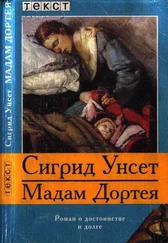“I was cast down so low, I hoped to die. I was so mad at the world, if I could’ve seen ’em I’d have punched out everyone who dared cross my path.”
But then Mason started noticing something.
“My left eye—my bad, lazy eye—seemed to be getting stronger.”
It took about a year, Mason’s hardworking eye making a little more progress each day, until it was as good as his dead eye used to be.
“And then, man, it just kept going! I mean, my left eye actually got better . Doctor said she never saw anything like it, but today this here eye is twenty- ten !”
Even if they’d already heard the story, people would roar when Mason got to this part. And they would hoot and stomp and clap as he told the rest so that he had to raise his voice louder and louder.
“It was like God had taken pity on me, and not just a little-bitty pity but enough to forgive the fact that I had only myself to blame. Because, don’t you know, I picked the fight in the bar that night. And I started thinking it was a miracle, and that within that miracle was a message for me. A message about blindness and healing. A message about laziness and strength. A message about work—about doing double duty and being rewarded with brand-new vision.
“And I knew that God was calling on me to put aside all my lazy, shameful, devil-delighting habits and to receive what he was holding out: a chance to accept his love and forgiveness and make myself worthy of the vision with which he’d blessed me. Mason the sinner had a new life, and Mason had a mission. Mason was blind no more. Now he must help the blind.”
Mason earns his worldly living fixing cars. But as part of his selfless service, he helps make Braille Bibles.
Cole likes Mason—all the kids do—and he feels foolish for ever having found him scary. But secretly he wishes he did not have to study Bible with him.
Whenever Pastor Wyatt talks about the Bible, whether he’s preaching a sermon or talking on Heaven’s A-Poppin’! or studying at home alone with Cole, he always makes it sound as if it had all just happened yesterday and he himself had been there. When he tells the story of Jesus, it’s as if he’d seen it all with his own eyes—the miracles, the Crucifixion—and Cole is captivated by his big voice and the way he moves his hands, floating them up and down like white birds.
“I’m too deaf to catch most of what he’s saying,” Cole has heard an old lady sitting behind him in church say. “But I feel blessed just watching him.”
“You want to teach folks, you got to hold their attention,” says PW. “Won’t do if they’re bored.”
But in Bible group Cole is often bored. In fact, Bible group reminds him a lot of school and of the kind of assignment he never liked. (Imagine that you, like the narrator, are drafted into the army to fight a war that you think is wrong. What would you do?) There is always a topic with a peppy title (“The Beatitudes vs. Bad Attitudes”), and though Mason picks the topic he has a rule about not doing much of the talking. He has another rule, about everyone having to write something about every topic.
“Okay, dudes, listen up. Say a Martian lands on Earth and this Martian comes up to you and he goes, ‘What’s this thing you Earthlings call Gospel?’ How would you define it for him? Say a secular kid tells you his mama told him Jesus’ story is nothing but a myth. How would you prove to this kid—without dissing his mama!—that she’s wrong? Cite verses but use your own words.”
But the worst assignments are the ones that are supposed to be fun. Rewrite the Beatitudes as hip-hop verses . The kind of thing that used to make Cole hate school.
But the other kids do have fun writing the hip-hop verses. And even when they might not like an assignment, they never get sullen or sarcastic or make a big show of how bored they are. And in this way Bible study is totally different from school. The other kids are happy to be there, and most of them throw themselves into the work. They want to please Mason, and they want to please God. Doesn’t Cole?
Mason sees all. Mason is not fooled. Mason teases Cole for not paying attention, for not really trying, and though he does it gently Cole is humiliated, he is ashamed, he knows it’s his same old problem. He has always been a bad student. Lazy, like Mason’s left eye. He will always be an underachiever. Everything has changed, but not this.
Mason sees all. “Never give up on yourself, little bruh. Moses was once a basket case.”
And in fact, it isn’t that Cole doesn’t want to learn. He loves the Bible stories. He thinks Daniel and Samson and David are superheroes. Every day he looks forward to the half-hour after supper that he spends with PW in the den. Cole has his own Bible, of course, but at these times they share an illustrated coffee-table-book-sized edition laid open on PW’s desk. They sit close together, and sometimes PW drapes his arm around Cole, and the weight and warmth of that thick arm on his narrow shoulders (like a friendly boa constrictor, Cole thinks) calm whatever jitters he might be having. When they are finished for the evening, PW kisses the side of Cole’s head. Once, he kept his lips pressed to Cole’s temple an extra beat and sniffed, saying, “You smell like a good boy to me,” and though Cole was embarrassed he was also pleased.
At first, when the inspiration comes to him, he puts off telling PW, afraid he might disapprove. But PW could not be more enthusiastic, and though Tracy’s response is not as important to him as PW’s, Cole is thrilled to hear her gush.
“Such a fine likeness of a lion! Nothing cowardly ’bout him , is there? And if that ain’t the darnedest scariest Goliath I’ve ever seen. Look, WyWy, he went and made Samson look like our Mason.”
Soon everyone in Salvation City knows about Cole’s gift, and besides his Bible-hero comics he is emboldened to try sketches—some cartoonish, some not—from life.
He is skillful beyond his years, and he knows it. The only good thing to come out of his days at Here Be Hope.
Two strokes of luck in that place where luck was essential to survive. First, he happened to be right there when a donation of art supplies arrived, and he’d managed to grab a supply of sketch pads and colored pens and pencils before they ran out (in that place where everything could be expected, almost instantly, to run out). Second, he had found a spot no one else seemed to know about (a cavity under some back stairs), where he could hide for hours without being disturbed.
In that hiding place he drew and drew. He hadn’t drawn anything in a while—not since the awful business with Mr. Gert. Now, in a flash, he finished a whole book about gladiators and was working on another one about mutant girl samurai. Works he was extremely proud of. Lost!
Sadly, those drawings had not made it to Salvation City. But Cole had let himself cry over this only once. For a while he consoled himself with the fantasy that they would be found by someone who would immediately recognize Cole’s talent. Then, no stone would be left unturned until the artist had been tracked down. And when they saw how young he was, he imagined people would shake their heads in disbelief. Probably this would all happen soon. Any day now, Cole Abrams Vining, boy wonder, would be discovered. From this, everything a boy could wish for would follow. But success would not spoil him. In fact, riches and fame would only increase his natural-born goodness. He would never forget the little people. And despite his own terrible childhood, how unfair life had been to him and all the suffering he’d had to endure, he would always be loving and generous, noble and kind.
Читать дальше












